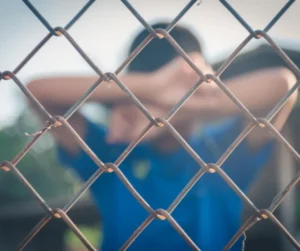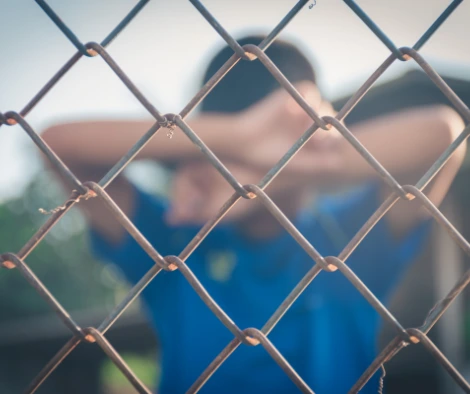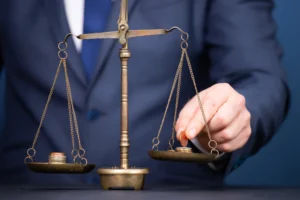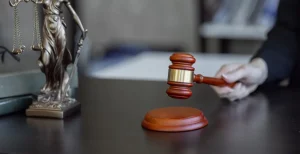

Understanding Juvenile Law
A single mistake should not define a young person’s future. However, in the legal system, juveniles who commit offenses can face serious consequences. Juvenile law is designed to balance accountability with rehabilitation, recognizing that young offenders have the potential to reform. The juvenile justice system differs from the adult system, emphasizing education, counseling, and community service over punitive measures.
Juvenile law governs offenses committed by individuals under the age of 18. Unlike the adult criminal system, which focuses on punishment, the juvenile system aims to rehabilitate young offenders while considering their developmental stage. Research by the Office of Juvenile Justice and Delinquency Prevention (OJJDP) shows that over 700,000 juvenile arrests occur annually in the United States. These cases range from minor infractions to serious felonies, and how they are handled depends on the severity of the crime and the juvenile’s history.
Youth Defense: Protecting a Minor’s Future
Youth defense is critical in ensuring that minors receive fair treatment and do not suffer lifelong consequences for mistakes made in their formative years. The legal defense of juveniles often involves different strategies than those used for adults. Lawyers focus on rehabilitation programs, diversion initiatives, and alternative sentencing options to keep minors out of the prison system.
Case Study: A Second Chance for James
James, a 15-year-old high school student, was charged with vandalism and theft after breaking into an abandoned building with friends. Because this was his first offense, his attorney fought to have him enrolled in a diversion program rather than face incarceration. Through this program, James attended counseling, performed community service, and completed an educational course about the consequences of criminal behavior. Six months later, his record was expunged, allowing him to move forward without a permanent criminal record.
This case illustrates the importance of strong legal representation in youth defense. Without an experienced attorney, James could have faced a criminal record that might have impacted his education, employment, and future opportunities.
Common Juvenile Offenses and Their Consequences
Juvenile offenses can range from minor infractions to serious crimes. Some of the most common offenses include:
- Shoplifting and theft – These are among the most frequent juvenile crimes and often result in fines, community service, or probation.
- Vandalism – Destroying or damaging property can lead to restitution payments and mandatory rehabilitation programs.
- Drug possession – Depending on the substance and amount, juveniles caught with drugs may face mandatory drug education programs or more severe legal consequences.
- Assault – Fights and physical altercations can result in probation, counseling, or detention in juvenile facilities.
- Traffic violations – Minors with licenses can face suspensions, fines, or additional driving restrictions for reckless behavior.
The penalties for these offenses vary based on state laws, prior criminal history, and the severity of the act. In extreme cases, juveniles can be tried as adults, leading to harsher punishments. According to the National Center for Juvenile Justice, around 53,000 minors are held in juvenile detention centers at any given time in the U.S.
The Importance of Early Legal Intervention
When a minor is accused of a crime, immediate legal intervention can make a significant difference. Unlike adult trials, juvenile cases often allow for more negotiation and alternative sentencing options. A skilled attorney can:
- Negotiate for diversion programs that focus on rehabilitation rather than punishment.
- Challenge the legality of the arrest or evidence to ensure the minor’s rights were not violated.
- Advocate for record sealing or expungement to prevent long-term consequences.
- Present mitigating factors, such as family circumstances or mental health issues, to reduce penalties.
Long-Term Effects of a Juvenile Conviction
A juvenile conviction can have lasting effects that extend into adulthood. Even if a juvenile serves time in a detention facility, the repercussions often include difficulties in securing employment, higher education, and housing. Many juvenile records can be sealed or expunged, but not all minors are aware of this option. Without proper legal guidance, they may carry the burden of a conviction for years.
Rehabilitation vs. Punishment: The Future of Juvenile Justice
There is an ongoing debate about whether the juvenile justice system should focus more on rehabilitation or punishment. Studies show that rehabilitation programs significantly reduce recidivism rates. Community-based programs, counseling, and vocational training help minors reintegrate into society and make better choices in the future. States that have adopted rehabilitation-focused policies, such as Connecticut and Massachusetts, have reported lower juvenile crime rates and improved outcomes for young offenders.
Frequently Asked Questions (FAQs)
- Can a juvenile be tried as an adult?
Yes, in cases involving serious crimes like murder, sexual assault, or armed robbery, a minor may be tried as an adult, facing harsher penalties. - How can a juvenile record be expunged?
Expungement laws vary by state, but many allow minors to have their records sealed after completing probation or diversion programs. - What should parents do if their child is arrested?
Parents should remain calm, avoid letting their children make statements without legal representation, and contact an experienced juvenile defense attorney immediately. - What are diversion programs?
Diversion programs provide alternatives to incarceration, such as counseling, community service, and educational programs, designed to rehabilitate rather than punish. - How does juvenile probation work?
Juvenile probation allows minors to serve their sentences outside detention centers while following strict behavioral guidelines set by the court.



